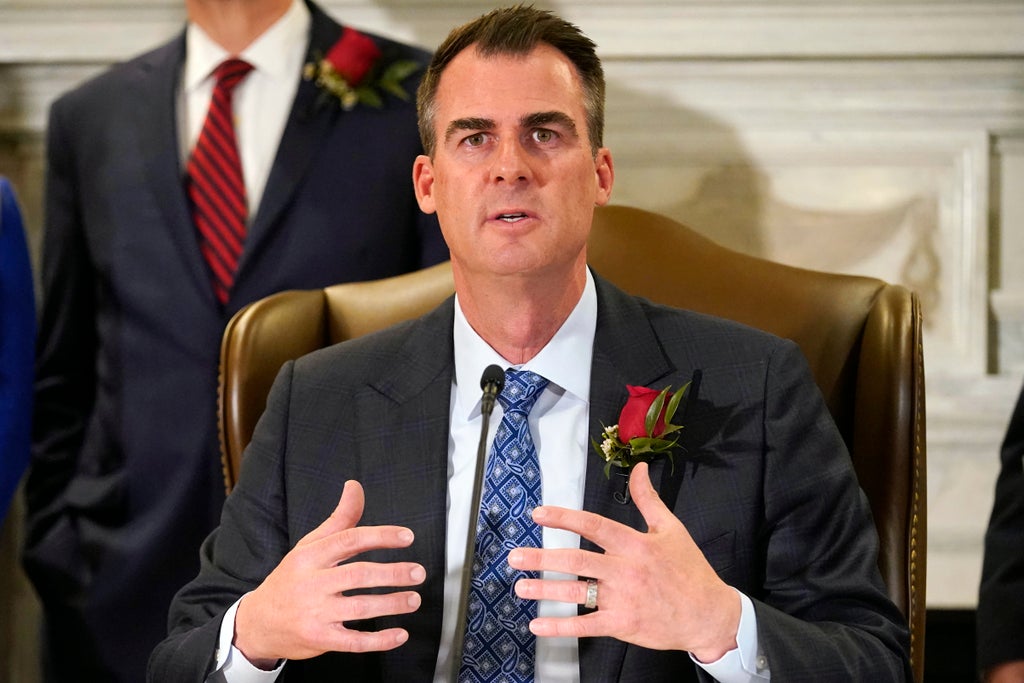
Oklahoma’s Republican Governor Kevin Stitt – who pledged to “outlaw abortion” in the state – has signed a measure into law banning abortion at six weeks of pregnancy, before many women know they are pregnant. The law will take effect immediately.
The measure mirrors a law in neighbouring Texas, where severe restrictions on abortion access have led to a drastic increase in abortion care in Oklahoma over the last several months.
Like the Texas law, Oklahoma’s measure relies on citizen enforcement, allowing people to sue abortion providers or anyone who helps a woman obtain an abortion for up to $10,000.
Abortion rights advocates and civil rights groups have pledged to challenge the Oklahoma law; a judge has rejected a request for a temporary restraining order to block the law, which now immediately goes into effect.
Oklahoma abortion providers already are reeling from a series of abortion restrictions approved by GOP legislators, including a law that makes abortion care a felony punishable up to 10 years in prison, set to take effect in August.
The laws come on the heels of a leaked draft US Supreme Court opinion indicating the court’s conservative majority will reverse the landmark 1973 ruling in Roe v Wade enshrining constitutional protections for abortion care, which is likely to trigger nationwide bans on the procedure.
Oklahoma’s measure joins a wave of anti-abortion bills from Republican state lawmakers across the US, emboldened by the Supreme Court’s anticipated ruling, which could activate so-called “trigger bans” in at least 16 states and other anti-abortion laws in more than half the country.
“There is power in calling these attacks what they are: a horrifying plan to dismantle the rights of more than half the people in this country,” Planned Parenthood Great Plains interim president Emily Wales said in a statement shared with The Independent.
“During the past eight months, we have seen desperation from Texans as they’ve traveled to our centers in Oklahoma, Arkansas, and Kansas,” she said. “The same question we’re hearing from patients time again - ‘why do I have fewer rights than my neighbors?’ – will soon be a reality nationwide. We will never stop caring for, fighting for, or supporting our patients.”
After the Texas law took effect in September 2021, Planned Parenthood facilities saw a massive spike in the number of patients from Texas.
The Trust Women clinic in Oklahoma City “has been inundated” with patients from Texas seeking access abortion care, according to the group’s advocacy director Myfy Jensen-Fellows.
Dr Iman Alsaden, medical director for Planned Parenthood Great Plains, said during a briefing on 3 May that clinics have seen patients “go through extreme lengths to access abortion care” in the state, “doing whatever they can to get basic healthcare for them and their families.”
“They’re taking time off of work, taking time out of school and taking time away from their family responsibilities to get the care that until September 2021 they were able to get safely and readily in their communities,” Dr Alsaden said during a briefing on 3 May. “Every time I see a patient from Texas ... I’m also thinking about those who don’t make it to our clinics.”
Planned Parenthood Federation of America, the Center for Reproductive Rights and Oklahoma Call for Reproductive Justice have filed joint lawsuits to block the latest Oklahoma laws.
“These abortion bans will push abortion access out of reach for many communities who already face often insurmountable barriers to health care, including Black and brown communities, low-income communities, and people who live in rural areas,” accoreing to Tamya Cox-Touree, co-chair of Oklahoma Call for Reproductive Justice.
“These are the same communities who are most impacted by the maternal health crisis occurring in our country and in our state,” she said in a statement announcing the legal challenges. “The lawmakers who passed these bans do not care about access to healthcare, and we can’t allow this law to take effect.”







